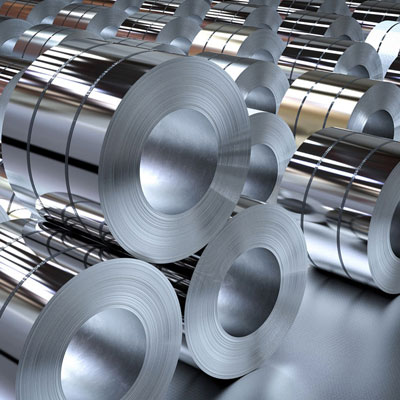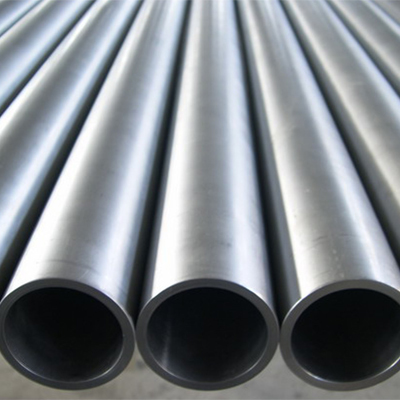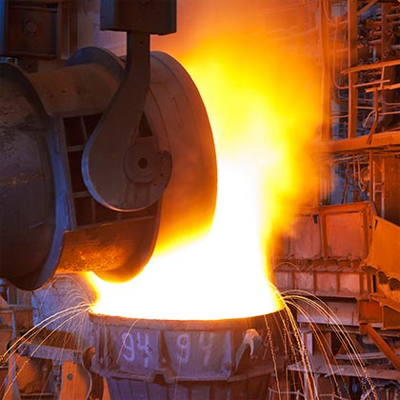How Do Minor Metals Enhance Steel Performance in Industry?

Introduction:
Steel is a fundamental material in various industries, known for its strength, durability, and versatility. However, the properties of steel can be significantly enhanced by the addition of minor metals. These minor metals, although present in relatively small quantities, play crucial roles in improving steel's performance, from enhancing its mechanical properties to increasing its resistance to corrosion and fatigue. In this article, we delve into the world of minor metals and their impact on steel in industrial applications.
Understanding Minor Metals:
Minor metals refer to a group of elements that are used in relatively small quantities compared to major metals like iron, aluminum, and copper. These metals include elements such as chromium, nickel, molybdenum, vanadium, and titanium, among others. While they may not be the primary components of steel, their presence in trace amounts can have profound effects on the material's properties.
Enhancing Mechanical Properties:
One of the key benefits of incorporating minor metals into steel is the enhancement of its mechanical properties. For example, chromium is widely used to improve steel's hardness, resistance to wear and abrasion, and its ability to withstand high temperatures. Nickel is another essential minor metal that contributes to steel's toughness, ductility, and corrosion resistance. Molybdenum enhances steel's strength and creep resistance, making it suitable for applications in high-stress environments.
Improving Corrosion Resistance:
Corrosion is a major concern in many industries, especially those involving exposure to harsh environments or corrosive substances. Minor metals like chromium and nickel play crucial roles in improving steel's corrosion resistance. Chromium forms a passive oxide layer on the surface of steel, known as stainless steel, which provides excellent protection against corrosion. Nickel, when added to steel, increases its resistance to both general and localized corrosion, making it ideal for marine and chemical processing applications.
Enhancing Fatigue Resistance:
Fatigue failure is a common issue in structural components subjected to repeated loading and unloading cycles. Minor metals such as molybdenum and vanadium help enhance steel's fatigue resistance, prolonging its service life and reducing the risk of unexpected failures. Molybdenum, in particular, improves steel's ability to withstand cyclic loading conditions, making it suitable for critical components in aerospace, automotive, and machinery industries. Vanadium also contributes to steel's fatigue strength and toughness, making it valuable in structural applications.
Optimizing Heat Treatment:
Minor metals play a vital role in optimizing the heat treatment process of steel. For instance, vanadium and titanium are used as grain refiners, promoting fine grain structure and improving steel's mechanical properties after heat treatment. These metals also help control the formation of undesirable phases during heat treatment, ensuring uniformity and consistency in steel's performance across different batches.
Enabling Specialized Applications:
The unique properties of minor metals make them indispensable in specialized steel applications. For example, tungsten is used in high-speed tool steels for its exceptional hardness and wear resistance, making it suitable for cutting and machining applications. Cobalt is another minor metal used in high-temperature alloys and magnetic steels, where its magnetic properties and heat resistance are highly valued.
Addressing Environmental Concerns:
In addition to enhancing steel's performance, minor metals can also contribute to sustainability and environmental protection. For instance, the use of chromium in stainless steel reduces the need for protective coatings and prolongs the lifespan of structures, reducing maintenance requirements and overall environmental impact. Similarly, advancements in recycling technologies for minor metals ensure efficient utilization of resources and minimize waste in steel production processes.
Challenges and Future Directions:
Despite the numerous benefits of minor metals in enhancing steel performance, several challenges exist, such as sourcing reliable and sustainable supply chains, managing costs, and addressing environmental regulations. However, ongoing research and development efforts focus on overcoming these challenges and exploring new alloys and processing techniques to further improve steel's properties and expand its applications.
Conclusion:
Minor metals play a critical role in enhancing steel performance across various industries, from improving mechanical properties and corrosion resistance to enabling specialized applications and addressing environmental concerns. As industries continue to innovate and demand high-performance materials, the synergistic integration of minor metals into steel will remain a key strategy for achieving optimal performance, durability, and sustainability in industrial applications.










